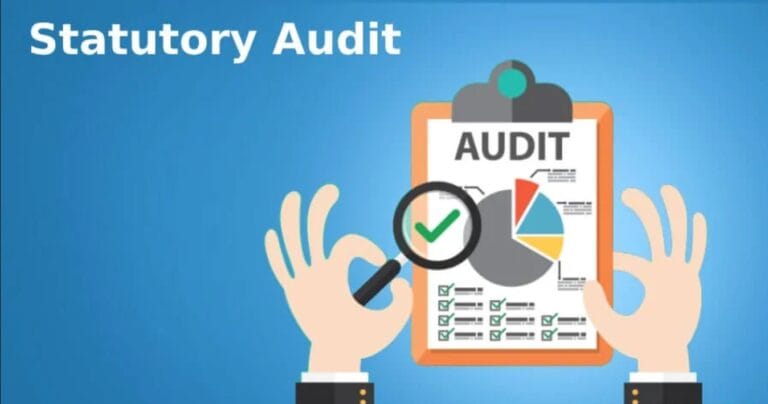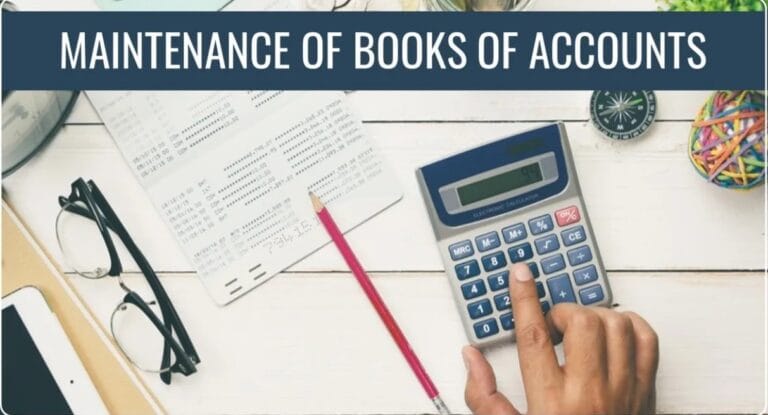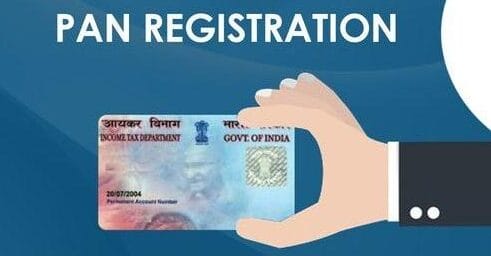Under the Insolvency and Bankruptcy Code, 2016 (IBC), the concept of a “transaction audit” primarily relates to the scrutiny and examination of transactions undertaken by the corporate debtor during the period before the initiation of the insolvency resolution process. This audit plays a crucial role in ensuring transparency, identifying potential irregularities, and safeguarding the interests of creditors and stakeholders involved in the resolution process.
A transaction audit typically refers to a thorough examination and review of specific financial transactions or a series of transactions within an organization or entity. The purpose of conducting such an audit is to ensure accuracy, legality, compliance with regulations, and to identify any irregularities or discrepancies that may exist. Here’s a breakdown of what it entails:
Objectives of Transaction Audit
- Accuracy and Compliance: Verify that transactions are accurately recorded in financial statements and comply with accounting standards and regulatory requirements.
- Detection of Fraud or Errors: Identify any fraudulent activities, errors, or irregularities in the transactions.
- Operational Efficiency: Assess the efficiency of transaction processing systems and controls in place.
- Risk Management: Evaluate risks associated with transactions and recommend controls to mitigate them.
- Legal and Regulatory Compliance: A key objective of transaction audits is to ensure that all transactions adhere to the legal and regulatory guidelines applicable to the organization, thereby maintaining the highest standards of compliance.
Process of Conducting a Transaction Audit
- Planning: Involves the defining of the scope and objectives of the audit. Determine the specific transactions or types of transactions to be audited.
- Data Collection: Gather relevant documentation, records, and information related to the transactions under review. This includes invoices, receipts, contracts, bank statements, and other supporting documents.
- Verification and Testing: Perform detailed testing and verification of selected transactions. This may involve reconciliations, sampling, and analysis of transaction data to ensure accuracy and compliance.
- Analysis: Analyze the results of the audit tests to identify any discrepancies, errors, or potential issues. Also include the assessment of the effectiveness of internal controls during the processing of such transactions.
- Reporting: Prepare a comprehensive audit report documenting findings, observations, and recommendations. The report may include suggested improvements to internal controls, compliance issues identified, and actions to address any irregularities found.
- Follow-Up: Under the necessary filing of applications before the adjudicating authority (NCLT), and adhere to the same.
Importance of Transaction Audits
- Financial Integrity: Ensures the accuracy and reliability of financial reporting by verifying the correctness of transactions.
- Compliance: Helps the Corporate Debtor adhering to legal and regulatory requirements governing financial transactions.
- Fraud Prevention: Detects and prevents fraudulent activities through systematic review and analysis.
- Operational Efficiency: Identifies opportunities to streamline transaction processes and improve operational efficiency.
- Risk Management: Mitigates risks associated with financial transactions by assessing control weaknesses and recommending enhancements
Purpose of Transaction Audit under IBC
- Identification of Preferential Transactions:
- Preferential Transactions: Transactions made by the corporate debtor before the initiation of insolvency proceedings that may have favored certain creditors over others. These transactions could include preferential payments, transfers, or transactions that might be considered detrimental to other creditors.
- Undervalued Transactions:
- Undervalued Transactions: Deals where assets of the corporate debtor were sold, transferred, or disposed of at a significantly lower value than their actual worth. Such transactions may warrant closer scrutiny to ensure fair treatment of all stakeholders.
- Extortionate Credit Transactions:
- Extortionate Credit Transactions: Loans or credit facilities extended to the corporate debtor under terms that are excessively burdensome, oppressive, or substantially unfair. These transactions are subject to review to protect the debtor’s estate and ensure fairness.
- Avoidance Transactions:
- Avoidance Transactions: Transactions that may be set aside or avoided because they occurred during a vulnerable period before the insolvency commencement date. These include transactions made with the intent to defraud creditors or unfairly prefer certain parties.
Conducting Transaction Audits under IBC
- Appointment of Insolvency Professional (IP): The IP appointed to manage the corporate debtor’s affairs during the resolution process is responsible for conducting or hire a professional and get the transaction audit conducted.
- Scope and Methodology: The audit involves reviewing financial records, transactional documents, contracts, and other relevant information to identify transactions falling under the categories mentioned above.
- Reporting: The findings of the transaction audit, a significant outcome, are reported to the Committee of Creditors (CoC), whose decisions can be influenced by these findings, such as the approval of resolution plans or initiation of legal actions to recover assets for the benefit of creditors.
Legal Framework and Compliances
- Transaction audits under the IBC are governed by the provisions of the Code, including Sections related to avoidance transactions (Section 43 to Section 51), preferential transactions (Section 43), and transactions defrauding creditors (Section 66).
- The objective is to ensure compliance with these provisions to protect the integrity of the insolvency resolution process and maximize the value of the debtor’s assets for distribution among creditors.
Transaction audits under the IBC are not just about maintaining transparency, integrity, and fairness in the insolvency resolution process. They also significantly impact the overall efficacy of the resolution mechanism established by the Insolvency and Bankruptcy Code, 2016. These audits are conducted diligently to identify and rectify any transactions that may unfairly prejudice creditors or compromise the resolution process.
At Ujjwal Gupta & Co
We, at Ujjwal Gupta & Co, are dedicated to delivering personalized, high-quality solutions tailored to meet your financial and business needs. With our team of professionals and a client-first approach, we ensure that every challenge is met with expert guidance and strategic insight.
We are dedicated to ensuring your business’s success by providing best service practice available in the industry and that too at a cost effective pricing. Our team of experts is excited to work with you and provide the support you need to thrive in the Indian business landscape.
Our only motive is to create Value for Our Clients and accordingly, have a Client Value System at our Office.
So, let us help you navigate the complexities of finance and compliance, empowering you to focus on what matters most — growing your business. Get in touch today, and take the first step towards financial peace of mind.
A transaction audit, also known as a forensic audit, is conducted during the Corporate Insolvency Resolution Process (CIRP) to examine the financial transactions of the corporate debtor. The audit aims to identify preferential, undervalued, fraudulent, or extortionate transactions that may have occurred prior to insolvency.
The Resolution Professional (RP) or Liquidator, appointed during the insolvency process, usually engages an independent audit firm or forensic experts to conduct the transaction audit. The RP then reviews the audit findings and presents the report to the Committee of Creditors (CoC) and the adjudicating authority, typically the National Company Law Tribunal (NCLT).
The key transactions investigated during the audit include:
- Preferential Transactions: Transactions that favor one creditor over others.
- Undervalued Transactions: Transactions where assets are transferred for significantly less than their fair value.
- Fraudulent Transactions: Transactions intended to defraud creditors or conceal the true financial state of the company.
- Extortionate Credit Transactions: Loans or credit obtained on terms that are excessively unfair or unconscionable.
The IBC prescribes a “look-back period” during which past transactions are scrutinized. For:
- Preferential transactions, the period is up to 2 years for related parties and 1 year for others.
- Undervalued transactions, the period is up to 2 years.
- Fraudulent transactions, no specific time limit applies, and such transactions can be scrutinized regardless of the period when they occurred.
The primary objectives are:
- To identify any transactions that have unfairly benefited certain stakeholders or defrauded creditors.
- To reverse any preferential, undervalued, or fraudulent transactions.
- To restore the corporate debtor’s financial health and ensure equitable treatment of creditors.
- To maximize the value of the debtor’s assets and increase creditor recovery.
If the transaction audit identifies irregular or illegal transactions, the Resolution Professional can:
- Apply to the NCLT to reverse or annul such transactions.
- Seek recovery of assets or funds that were improperly transferred.
- File criminal complaints if fraud or malicious intent is involved.
- Report the findings to the Committee of Creditors for further action, including litigation against those involved.
Preferential transactions are those where one creditor or stakeholder has been paid in preference to others just before the company becomes insolvent, creating an unfair advantage. Identifying such transactions ensures that all creditors are treated fairly, and preferential payments can be reversed to maintain equality among creditors.
Undervalued transactions involve the sale or transfer of assets for less than their true market value. If such transactions are found, the NCLT may reverse the transactions to recover the full value for the benefit of all creditors. This prevents the debtor from diminishing the asset pool just before insolvency.
If the transaction audit reveals fraudulent transactions, the Resolution Professional can file an application with the NCLT to reverse such transactions. The NCLT has the power to:
- Declare the transaction void.
- Direct the restoration of property or compensation to the creditors.
- Impose penalties on parties involved in the fraud, which may include the company’s management or third parties who participated in or benefited from the fraud.
By identifying and addressing irregular transactions, the audit helps recover assets or funds that were unfairly diverted or lost. This ensures that the asset pool available for distribution is maximized, allowing creditors to receive higher recoveries. The audit also prevents certain creditors or stakeholders from receiving unjust advantages at the expense of others.
Why Choose UGC?

Client Centric Approach
Client is the key driver of our service offerings. Our approach to service offerings is based on a client centric and customized approach. Our specialized teams are a mix of technical and industry experience in order to serve clientele for their specific needs.

Team Work
We have built high performing teams supported by strong work ethic. Our team is a mix of experts, professionals and support staff from technical and varied academic, social and ethnic backgrounds. We believe diversification plays a vital role in motivating the team.

Quick Turnaround
We always endeavour for a quick turnaround time to serve our clientele. We are supported by an experienced and client focussed support teams to offer timely services to our clientele. In case of any business exigencies and time sensitive service requirements, you can always count on us.

Open Communications
We believe that open communication is the core principle in order to demonstrate trust, build long lasting and valuable relationships with clientele. We are committed to ensuring transparency in communication, service offerings and delivery. We provide professional services to our clients.

Client Value System
We value for the Client time and thus, we offer services that are value for money. Quality professional services are provided to our clients, so that they are able to achieve their desired results. We are a quality trademark in the industry and thus, our clients count on us always.

Quality in Delivering Work
Our service offerings are driven by quality and reviews at every level. We strive to provide a qualitative and value-added delivery to our clientele. At all times, we endeavour to provide exceptional client service by meeting client expectations and driving client satisfaction.





















